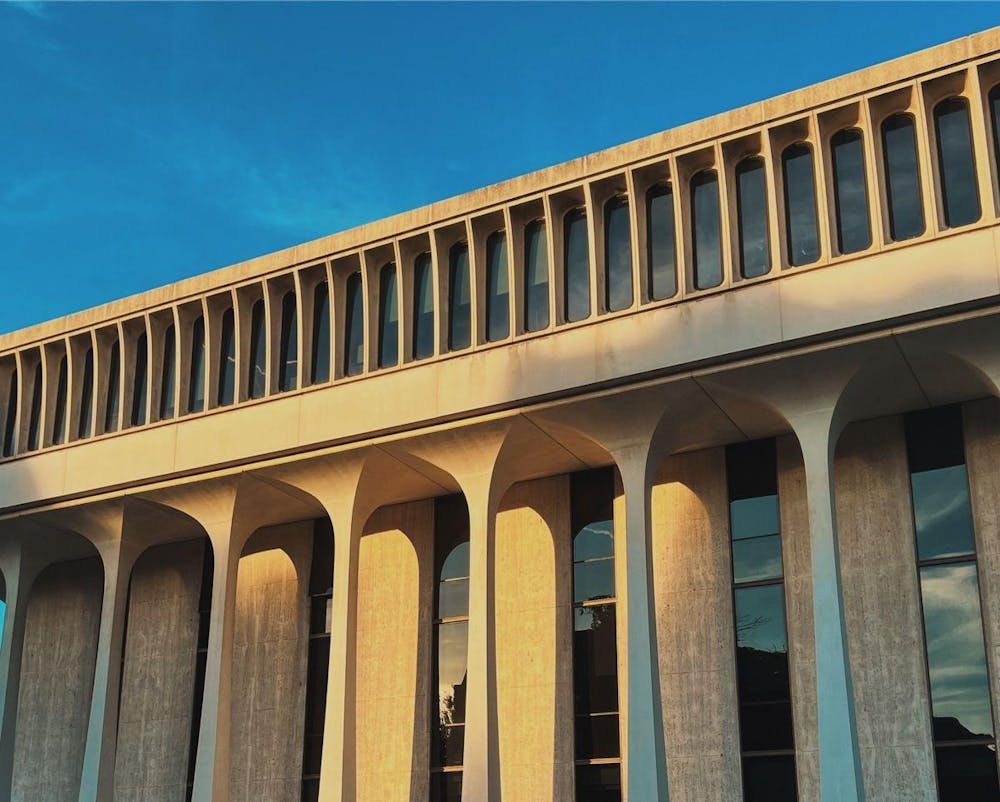Last spring, Kat Ivkovic ’25 traveled to Cleveland, Ohio, to meet Peter Kenney Jr., a man who was wrongly convicted of murder and kidnapping in 2001. As part of the course SPI 499: Making an Exoneree, Kat and her case partners visited Kenney’s family, investigated his case, and produced a documentary aimed at furthering efforts to secure Kenney’s exoneration.
“You meet the person you’re working with, and you form those real connections, [and] you want to do the best you can and the most you can for them,” Ivkovic told The Daily Princetonian.
In partnership with Georgetown University, Maya Dimant, a Lecturer and Clinical Law Fellow in the School of Public and International Affairs, offered Making an Exoneree in the spring of 2024. Professor James Raymond Vreeland offered the course in the spring of 2023. Students from this course have successfully freed two people in the last two years. Next semester, however, this partnership will end.
While Making an Exoneree is not being offered this spring, SPIA has developed a new course — SPI 413: The Criminal Legal System: Advocacy and Freedom — that shares the mission of working toward the freedom of a person who is incarcerated. However, in line with broader SPIA curricular changes aiming to highlight New Jersey in course offerings, the course specifically focuses on the criminal legal system in the Garden State. The course is not yet listed on the course registrar.
“This course offers an incredible and unique opportunity to learn by doing, to immerse yourself in the real work of justice, in an environment where you will be supported and guided as you dramatically expand the purview of what you know to be true personally from having experienced it,” Dimant told the ‘Prince.’
Unlike Making an Exoneree, the new course will focus not only on wrongfully convicted individuals, but also on all incarcerated people and restorative justice. Additionally, the final project will not be a documentary film, but will still be a product, according to Dimant, “that sets a person who is incarcerated up for longer term advocacy down the road, with our support.”
Students who previously took the class said that the new format would allow students to focus on legal and justice work.
“It took up a lot of time just learning how to make a documentary,” Ivkovic explained. “And while I do think it’s really impactful, I think some of the most impactful things that we could actually do were in the legal sphere, working on [Kenney’s] case.”
Dimant said the new course will immerse students in “building advocacy skills, including investigative research on the ground, fact-finding, trauma-informed interviewing, building supportive documentation and evidence, and building cross-cultural, racial, [and] socio-economic relationships.”
The new course comes amid a wider effort by SPIA to steer students toward public service in New Jersey. Last year, SPIA launched ”SPIA in NJ,” which “recognize[s] New Jersey as an ideal laboratory for connecting the theory and practice of public policy.”
“The more local the better, because it’s important to us to be contributing our Princeton resources to our surrounding community,” Dimant said of SPI 413.
Furthermore, Dimant added that the SPI 413 curriculum does not necessarily focus only on wrongful conviction, but on “freedom” and thinking about the potential for restorative justice.

“This country is addicted to punitive responses to harm,” she said. “We know that so much of the time, people that are accused of committing crimes, or who have actually committed crimes, are people that have been hurt, or abused, or are coming from poverty themselves, or otherwise didn’t have the proper support for success.”
“Unless you believe that every single person that is convicted of committing a crime should be incarcerated for life, they are still members of our community, even if we can’t see them,” she continued.
Dimant explained that Princeton community members have an obligation to think about how rehabilitative the criminal justice system actually is and to equip people who are incarcerated with the support to help them successfully transition to society post-incarceration.
“Part of our work is to hear their stories and to think about ways to repair the harm that’s been caused — both to them and by them — and how they can contribute meaningfully to society moving forward,” she added.
Emanuelle Sippy ’25 worked alongside Ivkovic in Making an Exoneree.
“I would definitely encourage Princeton students who are passionate about justice and committed to pursuing related work to take [SPI 413]” Sippy said, reflecting on her own experience in Making an Exoneree. “It’s definitely a major commitment, but it is very rewarding and powerful to feel that your academic work is not actually separate from the real world, but is actually [tied] to somebody's real life and real experience and connected to a web and a community of experiences.”
Ivkovic added that building connections with participants fosters a sense of responsibility, which is crucial for students in the course.
“The reason why the workload is a lot is because you care so much,” Ivkovic said. “Everyone has taken a hard class at Princeton where there’s a lot of work. This was the kind of work where I was choosing to do it over everything else.”
Students can apply for admission to SPI 413 by sending their resumes and a video — no longer than five minutes — explaining their interest in the course to mayadimant[at]princeton.edu by Friday, Nov. 15 at 9 a.m.
Correction: a previous version of this article incorrectly referred to Maya Dimant as a professor. The ‘Prince’ regrets this error.
Elisabeth Stewart is an assistant News editor for the ‘Prince’ who typically covers student groups and religious life on campus.
Please send any corrections to corrections[at]dailyprincetonian.com.








